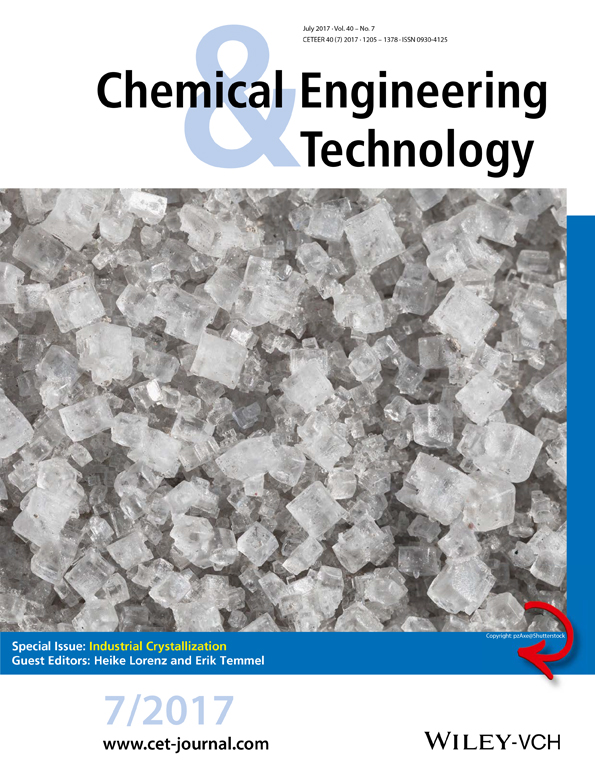Industrial Crystallization: Classical Technology with Steadily Increasing Applications and Importance
Abstract
No abstract.
Crystallization is a key technology for separation, purification, and formulation of substances in chemical, processing, and life-science industries. Product amounts range from several kilograms to multi-ton scales per year taking into account highly active pharmaceuticals on the one side and bulk chemicals, e.g., mineral salts, on the other side. New challenges arise with changing requirements on the product specifications such as increasing purity demands with regard to certain side products, the directed provision of a specific solid-state form or material with a defined particle size or morphology. The same applies to process-related target characteristics as yield, robustness, and sustainability. Such demanding tasks require a multidisciplinary approach and active collaboration between academic and industrial researchers.
The “Bremen International Workshop on Industrial Crystallization” (BIWIC), an annual meeting held in the previous years in Delft, Tianjin, Odense, Rouen, and Daejeon, addresses this issue by bringing together scientists and engineers from academia and industry to present and discuss the current work and to identify challenging fields of prospective research of fundamental and industrial interest. In 2016, it took place in Magdeburg for the 2nd time. Participants from 22 countries all around the world presented 78 talks and poster contributions, again verifying that the BIWIC has become a valuable international forum of the crystallization community that creates substantial scientific gain.
This special issue of Chemical Engineering & Technology features a selection of 22 contributions addressing topics that reflect key applications and recent trends of crystallization. Industrial applications comprise separation and formulation of drug or nutrition components in pharmaceutical and food industry, crystallization issues in medical applications, crystallization process design in production of bulk chemicals and wastewater treatment.
The special issue starts with a review article that, together with a couple of further papers, is concerned with crystallization of chiral compounds. Enantioseparation and polymorph control are of vital significance in pharmaceutical research and development. The raising demand for continuous production in industry is accommodated as well by publications investigating crystallization processes following the MSMPR principle applying e.g., novel control strategies. A number of articles are concerned with particle and shape engineering by additives or controlled nucleation, showing the ongoing interest in defining a specific product quality by crystallization. Fundamental problems of crystallization such as quantifying and understanding phase equilibria and admixture effects, elucidating growth mechanisms, and altering the growth behavior are addressed in a further set of contributions. Articles related to application of novel techniques for crystallization hydrodynamics monitoring and synthesis and characterization of functional materials complete this special issue and demonstrate the great variety of topics covered.
In 2017, the BIWIC will be held in Dortmund and is expected to show again, aside from excellent contributions, the relevance of exchange and discussion between academia and industry for progress in this particular field of science.
Heike Lorenz and Erik Temmel
Max Planck Institute for Dynamics of Complex Technical Systems Magdeburg and Otto von Guericke University Magdeburg






